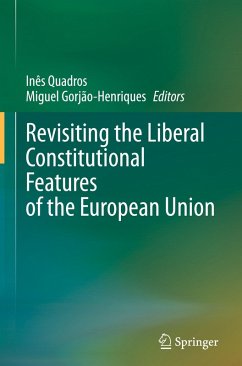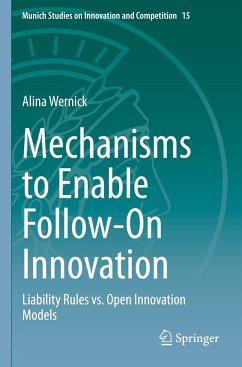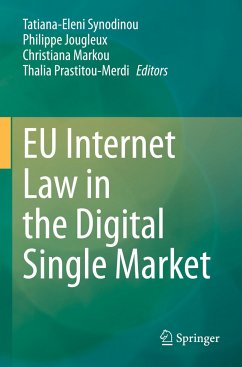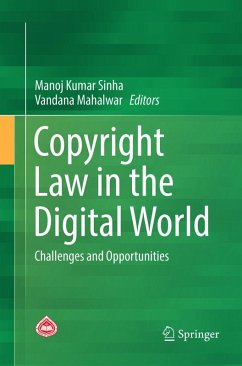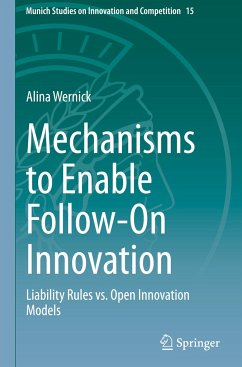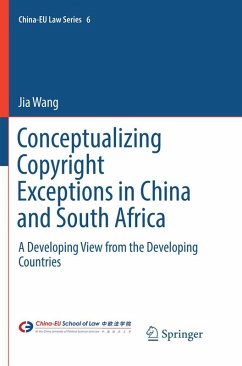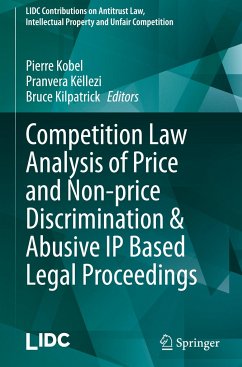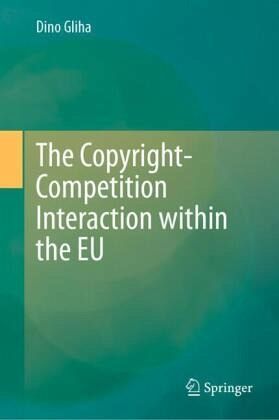
The Copyright-Competition Interaction within the EU

PAYBACK Punkte
62 °P sammeln!
This book provides a comprehensive analysis of the copyright-competition interaction issue in the EU and provides a sustainable method of approach. The research identifies several approaches to the copyright-competition issue some of which were extensively applied in practice, while others were considered more theoretical. However, none of the discussed approaches has proved to be an adequate fundament to understanding the copyright-competition interaction issue, and there is still a considerable disagreement on how to deal with this matter. It is vital to start with the relationship between c...
This book provides a comprehensive analysis of the copyright-competition interaction issue in the EU and provides a sustainable method of approach. The research identifies several approaches to the copyright-competition issue some of which were extensively applied in practice, while others were considered more theoretical. However, none of the discussed approaches has proved to be an adequate fundament to understanding the copyright-competition interaction issue, and there is still a considerable disagreement on how to deal with this matter. It is vital to start with the relationship between copyright law and competition law to overcome the flaws of the identified approaches. The issue can be elegantly settled through the existent principles of both laws. From the perspective of copyright law, the application of competition law is a limitation of the author's right in a broader sense originating outside of copyright law. From the perspective of competition law, the presence of copyright should be comprehended as a specific situation in which the focus should mainly be on the effects of copyright instead of allocation and productiveness; at the same time, the concept of authorship should be taken into consideration in the light of consumer welfare. Only after the fundamental approach to the copyright-competition interaction issue is settled is it possible to analyse specific situations further. In practice, several types of exercises have been recognised as the matter of the copyright-competition interaction. The research focuses on the interference between the exercise of copyright and competition rules on prohibited agreements (i.e. licensing practices) and abuse of dominant position (i.e. refusal to license copyright). Each situation is analysed separately based on the common understanding of the copyright-competition interaction issue and following the fundamental principles of copyright law and competition law. In doing so, a detailed critical analysis of the relevant case-law and literature is provided. After the analysis of the relevant case-law and doctrine for both situations are conducted, the research produces a specific approach and method of analysis specific for the copyright-competition interaction cases dealing under Article 101 and Article 102 TFEU. It should be noted that the approaches are primarily construed from the perspective of copyright civil law tradition and EU competition law, although such approach might as well be considered in other legal systems and traditions. In the end, a special view is given to the digital industry sector and the assessment of further potential developments in that field that might potentially fall under the scope of the copyright-competition interaction issue.




